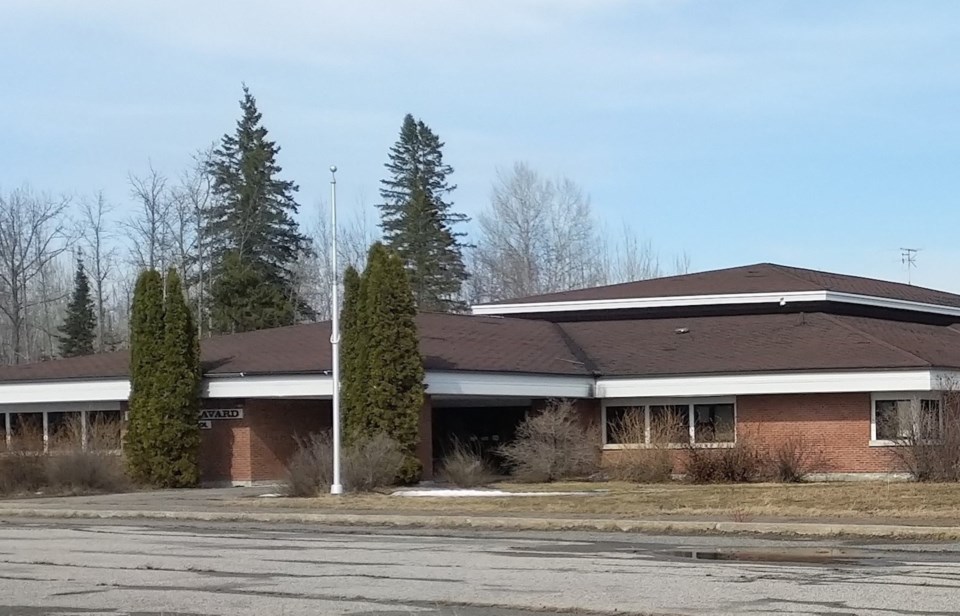A partnership between an Indigenous hub and a non-profit has resulted in the creation of a centre aiming to bring economic and environmental changes to rural and Indigenous communities.
The Charlton Sustainability Hub (CSH) will offer resources, tools and knowledge on how to lead a sustainable, affordable, low-carbon lifestyle.
The non-profit Northern Ontario Centre for Sustainable Development Co-Op Inc. (NOCSDC) is partnering with Keepers of the Circle on establishing the hub.
It will be operated out of the former public school in Charlton, a small community on Highway 11 near Englehart. The centre's concept was inspired by successful sustainability hubs in Europe, specifically Denmark.
The centre’s teaching and modelling programs will focus on five pillars: reversing youth out-migration, renewable energy, food security, reclaiming traditional ecological knowledge and transitioning to a new green economy.
The school, powered by solar net metering energy, will have computer offices, a community kitchen and a gym, which will be used for community space.
CHS will also provide short-term accommodations for 30 people. According to Ambrose Raftis, NOCSDC chairman, people who stay at the hub will be immersed in a low-carbon environment.
"Part of the reason for the centre is to bring young people, school-aged children and youth in and show them like, ‘Here’s an alternative way of living, you can live with renewable energy and local food with high quality of life. And you can do it in your community,’” Raftis said.
Once renovations are done, the hub is expected to officially open to the public in the fall of 2021 or early 2022.
According to the hub's website, the centre will offer guided tours, tailored courses, online and hands-on programs.
“We supply training information and support at a cost-recovery rate, so people who don’t have a lot of money can afford to learn more and be a part of the economy and the change,” Raftis said. “Because the reason they want a change is the economy is not working for them including Indigenous communities.”
The Keepers of the Circle will also be located on-site delivering traditional land-based skills, teaching how to grow and preserve food, how to start green businesses and live off the grid, said Rachel Lachance, the hub’s Indigenous liaison.
In February, the first initiative was launched through the hub. It was a federally-funded program called Pathways to Resilience: Intro to Emerging and Established Careers for Indigenous Women.
Lachance said the feedback and the data the organizers received from the seven-week program were “phenomenal.” She said more than 175 Indigenous women from northeastern Ontario applied for the program but only 100 people could be accepted.
"It's an actual reconciliation project where you're dealing with co-operative and dealing with an Indigenous organization, so it's a really great partnership in that way because we really focus on Calls to Action and MMIWG's Calls to (Justice)," she said.
During the first week, there was a virtual job fair where participants were introduced to career opportunities in sectors like construction, entrepreneurship, security and policing, green living, and environmental impact assessment.
The following six weeks focused on curriculum-based pre-employment training in each of the five sectors. There were expert speakers from each of the sectors who talked more about how to get into those careers as well as assignments and competency training.
To help participants during the course, they were offered laptops and printers, help with the internet, childcare services and weekly honorariums, according to Lachance.
Currently, the Pathways program is in Phase 3 as the Keepers of the Circle are working on personal and professional development plans with each participant.
"For the whole rest of the year, we're going to be supporting each of these women to reach those goals," Lachance said.
With the internet on-site and as a non-profit with charitable status, the centre can connect and bring people together, Raftis said.
“We may bring six or eight people down from one community and connect the rest of the community via the internet and have community training sessions,” Raftis said.
The site can also be used to house community members in the event of a forest fire, drought or power failure.
“We have a backup system, we can bring people in there and feed them and stuff like that, from local communities,” Raftis said.
The collective applied for community outreach funding and is waiting to hear back from FedNor and the Northern Ontario Heritage Fund Corp., Raftis said. The funding will help gather input from local municipalities and Indigenous communities on the development of the project.



